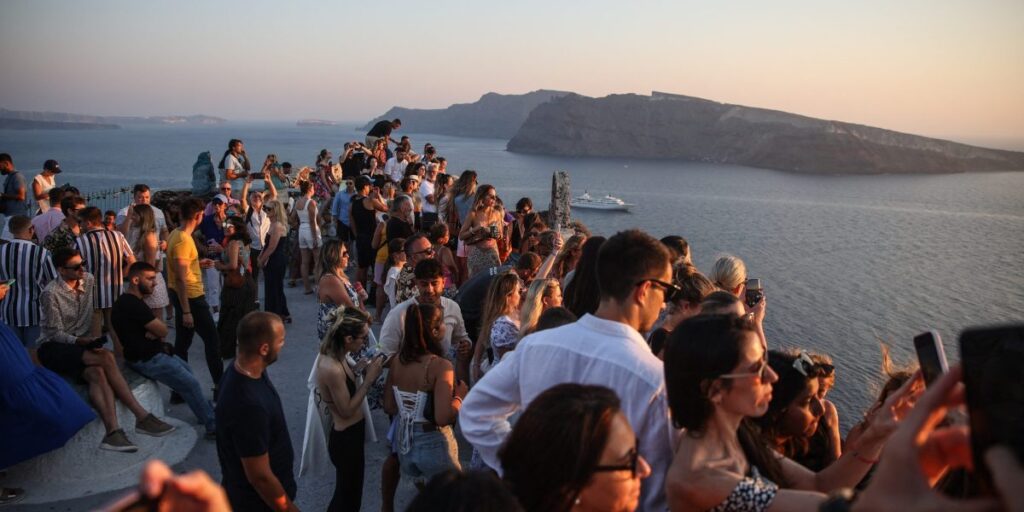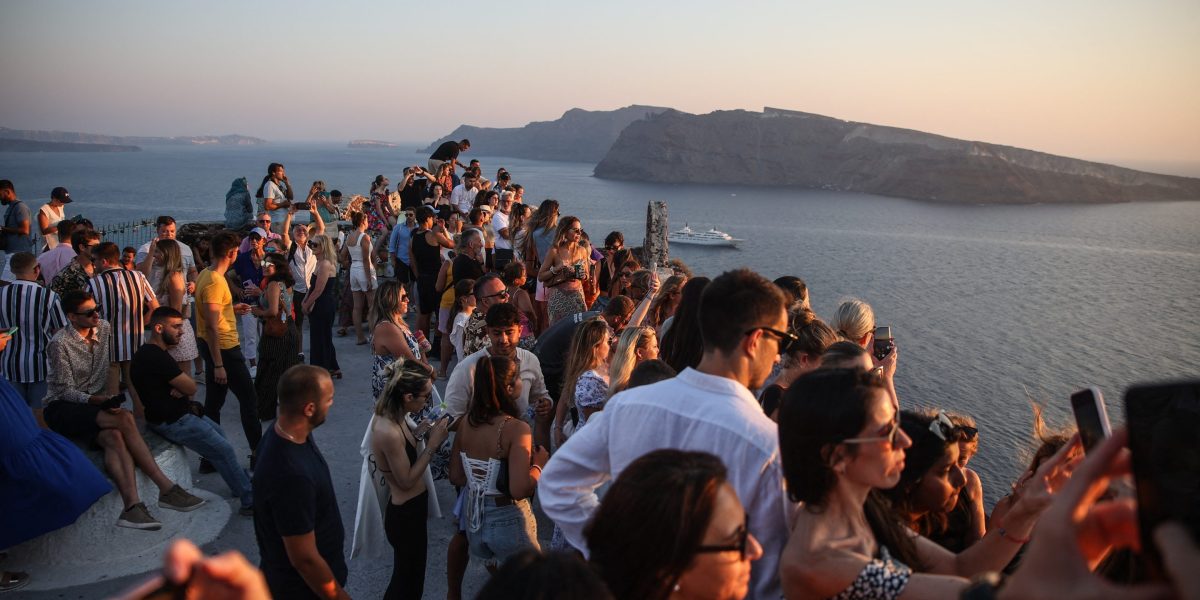Greek islands labeled ‘out of control’ amid summer tourism crush
Last year saw 32.7 million tourists visit Greece — the highest number ever — and 2024 is on track to break the record once again.


When Frenchwoman Nadia Romon picked the island of Hydra for her Greek holiday, she was looking for “authenticity” far from the crowded summer circus.
This ruled out big-name destinations such as Mykonos and Santorini.
“We wouldn’t enjoy it! Too many people, too much stress,” the 55-year-old said.
But with Greece and its crystal-clear waters firmly back on the global travel map after a 10-year debt crisis and the Covid-19 pandemic, finding this elusive combination is easier said than done.
Last year, despite deadly fires and a long heatwave, 32.7 million foreigners visited the Mediterranean country — the highest number ever.
And Greece’s Tourism Minister Olga Kefalogianni told AFP in a recent interview that 2024 had “begun with a significant increase” in tourist numbers and was set to be “another record year”.
“A balance must be found” between economic gains and the pressure visitors place on the environment and local populations, she said.
As he watched bathers plunge into the Aegean Sea’s turquoise waters, 52-year-old Romanian holidaymaker Matei Paun observed that “it’s not easy” to get away from the crowds with so many tourists.
An avid fan of Greece, Paun has a tip: opt for islands with no airport such as Hydra, around 90 minutes by boat from Piraeus, the major port close to Athens.
‘Out of control’
Like their customers, many of the island’s shopkeepers cite Mykonos and Santorini as examples of overcrowding best avoided.
“We must maintain the elegance” of Hydra, said 52-year-old restaurant owner Nikos Daglis.
The island, where cars are banned, enjoys an image of chic burnished by the many artists who have fallen under its spell — foremost among them the late legendary Canadian poet and singer Leonard Cohen.
But with chic and cachet comes higher prices and bigger crowds, with Hilda Eksian, manager of the Phaedra Hotel, admitting that the situation is “a little out of control”.
The 68-year-old was appalled to see rooms going for 1,600 euros ($1,747) a night, and complained that it was almost impossible to find a deckchair on the beach or a free table at a restaurant last summer.
Hydra “can’t take any more people”, Eksian said. She wished journalists would stop promoting the place, arguing that Hydra is “already more (well-known) than it needs to be”.
Despite high prices, Hydra has been “flooded with tourists” since the end of pandemic-era travel restrictions, said Harriet Jarman, a Briton who organises horseback rides.
But Jarman, who has lived on the island for 10 years, does not see much alternative to letting visitors flow in.
“Here we don’t have any other industry. If it wasn’t for tourism, what would we do?” she said.
Other perils
After decades of exposure, many Greek islands face other tourism-related perils.
Those range from water shortages, pollution and waste management problems to classic cases of badly behaved visitors.
In June, fireworks believed to have been launched from a tourist yacht sparked a fire in one of the island’s few forested areas, prompting outrage in Greece and abroad.
Greek authorities are now seeking to diversify tourism from the classic “beach and sun” formula by encouraging other activities such as diving and hiking.
“We’re also trying to promote destinations that are less well known internationally,” especially in mainland Greece, Kefalogianni said.
Another option is to further develop tourism in the off-season — now more feasible because of milder winters caused by global warming.
Spreading out the season would also help cover the loss of visitors who steer clear of Greece in the summer because of heatwaves and fires, the research institute of prominent Greek tourism association SETE said in December.
A year ago, Hydra completed a network of walking trails built in collaboration with hiking co-operative Paths of Greece.
Hiking will enable Greece to “showcase the quality of its landscapes and culture to tourists who appreciate them,” said the co-operative’s director Fivos Tsaravopoulos.





